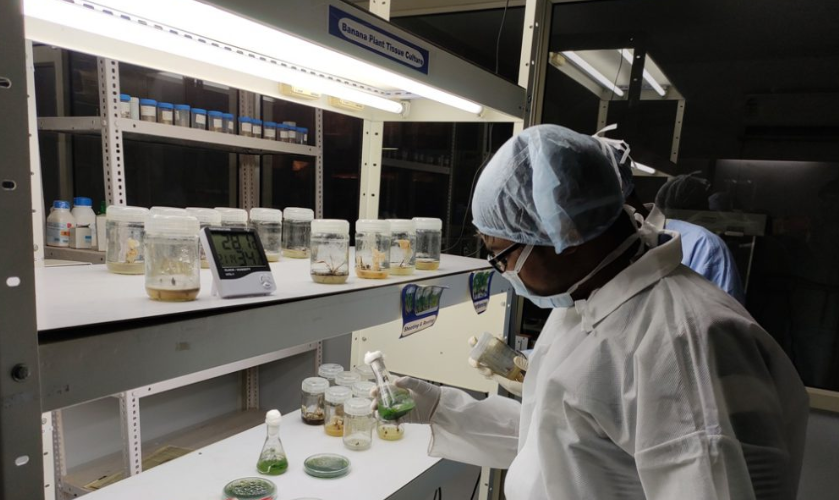The Department of Agricultural Research (DAR) is nearing completion of a state-of-the-art plant tissue culture laboratory, a ground-breaking initiative aimed at supplying the agricultural sector with locally adapted seed varieties.
Funded by the African Partnership Programme for Sustainable Agriculture (APPSA), the facility, set to launch in June, is situated on the grounds of the Lesotho Agricultural College.
A plant tissue culture laboratory provides a controlled environment where scientists grow and care for plant cells, tissues, and organs, ensuring the production of high-quality, disease-free plants.
This approach allows for the rapid multiplication of plants, supporting both research and farming efforts. The facility has been designed to eliminate contamination risks and regulate key growth factors such as temperature, humidity, light, and nutrients, ensuring plants develop optimally before being introduced to fields.
An integral feature of the laboratory is its gene bank, which will preserve a diverse collection of seeds crucial for climate-smart agriculture.
Monica Lephole, APPSA Lesotho Coordinator, highlighted the importance of this resource in supporting local adaptation and agricultural resilience.
“Gene banks preserve genetic diversity for future use. They empower farmers by providing locally adapted seeds, reducing dependence on external suppliers, and improving economic resilience,” she explained.
Lephole further emphasised the initiative’s role in transferring technology to lead farmers, who will be trained and provided with seed stock to breed and multiply.
“These seeds will then be distributed to follower farmers and creating a sustainable supply chain.”
She described seed breeding as a critical agricultural practice that ensures farmers have access to high-quality, certified seeds tailored to local conditions.
“The importance of this area cannot be overestimated because yield, taste, storage potential, and other crop properties directly depend on seed quality. Selected seed production allows farmers to maintain productivity even under unfavourable conditions,” she clarified.
Lephole reaffirmed the Department of Agricultural Research’s commitment to equipping farmers with the best resources to thrive despite environmental challenges.
“By localising seed production, we are strengthening Lesotho’s agricultural resilience and ensuring a sustainable future for food security,” Lephole stated.
She also noted that the preserved genetic material in the gene bank would serve as a foundation for research, helping scientists explore plant evolution and develop new agricultural technologies.
Lead farmer ‘Malieketso Khabele when speaking with Seahlolo echoed the significance of this initiative, particularly in conserving indigenous seed varieties.
“Seed banks are important for saving both wild and farmed plant genetic resources. They help keep a wide range of plant species safe for future generations. These banks protect genetic material that is crucial for improving crops, fighting diseases, and adapting to climate change.”
“I also learned that indigenous seed varieties are a promising way to enhance food security in the country,” she said.
Traditionally, Lesotho’s farmers have relied on informal seed-saving methods, often resulting in poor-quality seeds and declining productivity. Reports from the Department of Agricultural Research indicate that this new initiative marks a major shift toward structured, science-driven seed production, offering farmers reliable access to superior crop varieties.




